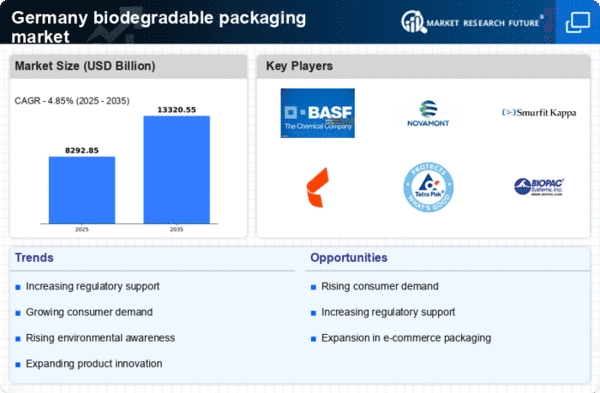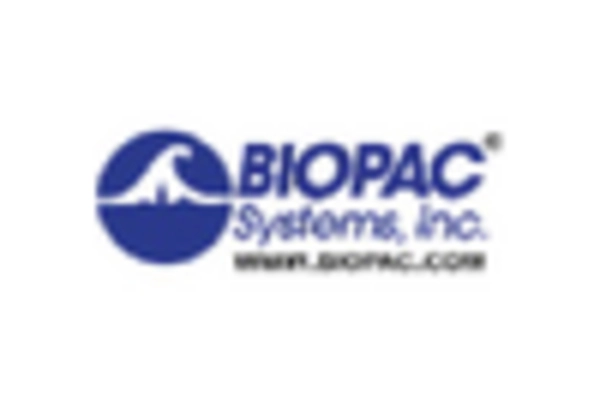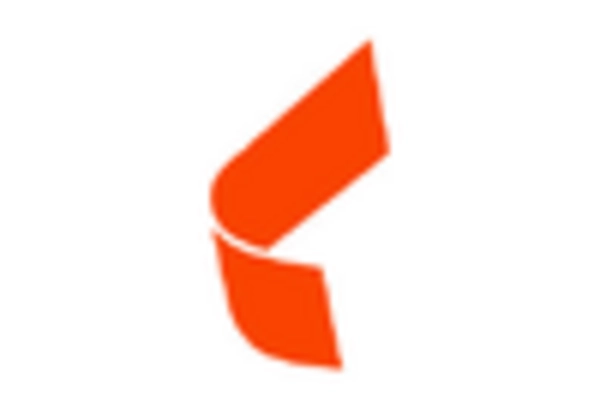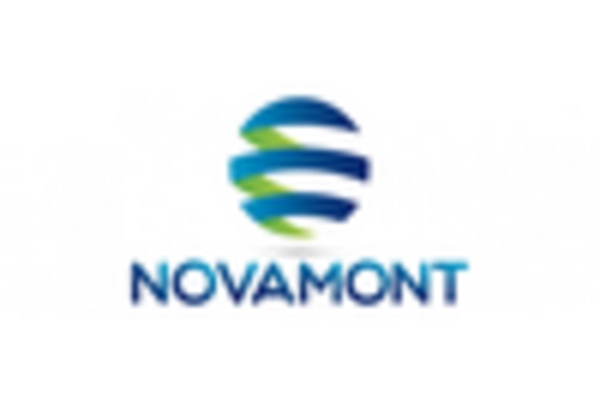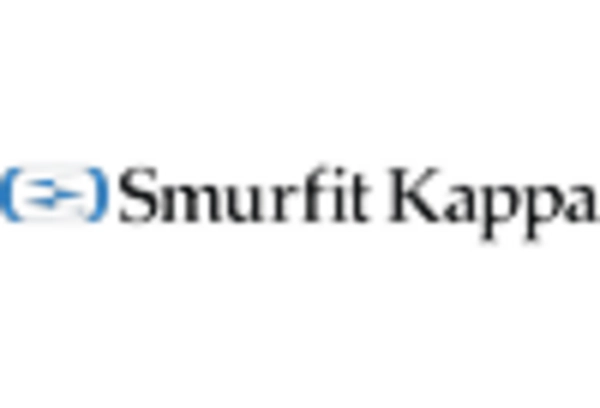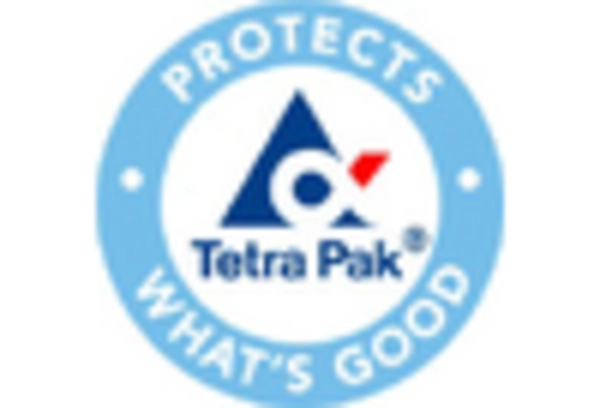Government Initiatives
Government initiatives aimed at reducing plastic waste are significantly influencing the biodegradable packaging market in Germany. The German government has implemented various policies and regulations to promote sustainable packaging solutions, including incentives for companies that adopt biodegradable materials. For instance, the introduction of the Packaging Act mandates that businesses minimize packaging waste and encourages the use of biodegradable options. This regulatory framework is expected to drive the biodegradable packaging market, as companies strive to comply with these regulations. Market analysis indicates that the biodegradable packaging segment could witness a growth rate of around 15% annually, driven by these supportive government measures. Such initiatives not only foster innovation in packaging solutions but also align with Germany's broader environmental goals.
Environmental Awareness
The increasing environmental awareness among consumers in Germany is a pivotal driver for the biodegradable packaging market. As individuals become more conscious of their ecological footprint, they actively seek sustainable alternatives to traditional packaging. This shift in consumer behavior is reflected in market data, indicating that approximately 70% of German consumers prefer products with eco-friendly packaging. Consequently, businesses are compelled to adapt their packaging strategies to meet this demand, thereby propelling the growth of the biodegradable packaging market. Companies that prioritize sustainability not only enhance their brand image but also tap into a lucrative segment of environmentally conscious consumers. This trend suggests that the biodegradable packaging market will continue to expand as more consumers advocate for responsible consumption and waste reduction.
Technological Advancements
Technological advancements in material science are playing a crucial role in the evolution of the biodegradable packaging market in Germany. Innovations in bioplastics and other biodegradable materials are enhancing the performance and affordability of these packaging solutions. Research indicates that the development of new biodegradable polymers could reduce production costs by up to 30%, making them more accessible to manufacturers. This technological progress not only improves the functionality of biodegradable packaging but also addresses concerns regarding durability and shelf life. As a result, businesses are more inclined to invest in biodegradable options, thereby stimulating growth in the market. The ongoing research and development efforts suggest that the biodegradable packaging market will continue to benefit from these advancements, leading to a wider adoption across various industries.
Corporate Sustainability Goals
Many corporations in Germany are setting ambitious sustainability goals, which is a key driver for the biodegradable packaging market. As companies strive to reduce their carbon footprint and enhance their corporate social responsibility (CSR) profiles, they are increasingly turning to biodegradable packaging solutions. This trend is evident in various sectors, including food and beverage, where brands are committing to 100% recyclable or biodegradable packaging by 2025. Market data suggests that the demand for biodegradable packaging could rise by 20% in the next five years as more companies integrate sustainability into their core business strategies. This alignment of corporate objectives with environmental stewardship is likely to bolster the biodegradable packaging market, creating a competitive advantage for early adopters.
Consumer Preferences for Convenience
Consumer preferences for convenience are increasingly shaping the biodegradable packaging market in Germany. As lifestyles become busier, consumers are gravitating towards packaging solutions that offer ease of use while being environmentally friendly. This trend is particularly evident in the food delivery and takeaway sectors, where biodegradable packaging is gaining traction due to its convenience and sustainability. Industry expert's reveal that around 60% of consumers are willing to pay a premium for biodegradable packaging that enhances convenience. This willingness to invest in sustainable options indicates a strong potential for growth in the biodegradable packaging market. Companies that can effectively combine convenience with eco-friendliness are likely to capture a larger share of the market, reflecting the evolving preferences of German consumers.


